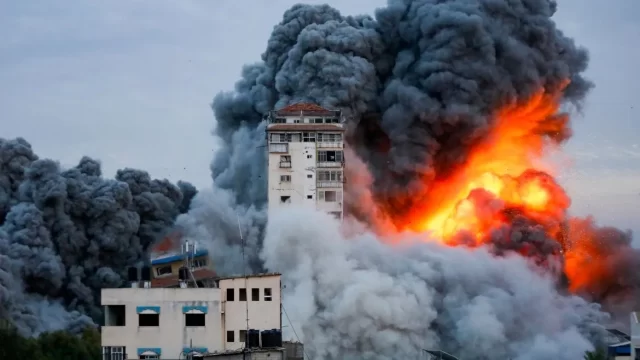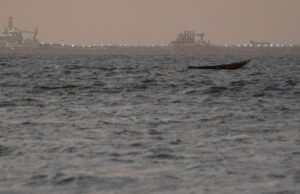
The IMF’s World Economic Outlook, released earlier this month but drafted before the ongoing Israel-Palestine war, presented a grim picture of the global economic growth trends. War clouds in Israel and Palestine have further darkened the horizons of the world economy with of course adverse implications for African economies as well.
Apart from weakening economic growth, the conflict has political, economic, and security undercurrents for Africa.
By being part of the Middle East and North Africa (MENA) region, African countries like Egypt, Algeria, Libya, Morocco, and Tunisia are vulnerable to the geopolitical turmoil in the region. The flow of migrants, refugees, and asylum seekers to Africa could place additional strains on the already limited resources and could influence the domestic policies and politics of the host countries.
The Israel-Palestine conflict has the potential to inflame tensions and embolden terrorist elements, with a ripple effect on the continent. It can provoke religious and ethnic tensions in the region. particularly in some of the African nations with significant Muslim and Christian populations. Of late, armed conflicts with religious overtones have been reported from countries like Ethiopia, Central African Republic (CAR), Mali, Nigeria, and Somalia.
Terrorist organizations in the Middle East, such as ISIS and Al-Qaeda, may try to use the opportunity to exploit the Israel-Palestine crisis to advance their agenda, which in turn, could create security challenges for Africa. Recently, it was reported that agents of Al Shabaab, the Somali militant group, issued a document to journalists supporting the Hamas raid of Israel, their common enemy. Security experts caution that inspired by Hama’s strategy in Israel, Al Shabaab could target East African installations to raise their profile.
Africa also has to brace up for costlier imports and food shortages, experts say. Instability in the Middle East and disruption in global energy markets are bound to escalate the cost of oil and other commodities. Fluctuations in commodity prices could spell doom for many African nations. Rising energy costs will have cost consequences across the board. And it is happening at a time when Africa is still recovering from multiple setbacks including Covid-19, climatic stresses, and Russia’s invasion of Ukraine. A fresh wave of inflation and high-interest rates in the region could derail these economies.
The conflict will also be a setback for the crisis in Sudan. The diplomatic efforts of Saudi Arabia and the US on Sudan will get diverted to the Israel-Palestine war.
Like the rest of the World, African countries also try to do a diplomatic balancing act with Israel and Palestine. Historically, Africa has been divided in its stance on the Israel-Palestine conflict. While some nations support Israel, allegedly due to historical ties or shared interests, others have expressed solidarity with the Palestinian cause.
So far, Israel is recognised by 46 of the 55 AU member states and has 17 embassies and 12 consulates in Africa. With the growing presence and influence of Israel in the continent, the African Union has also struggled to balance the equation. However, due to a lack of consensus, the AU has been unable to confirm Israel’s observer status despite its application to rejoin in 2021.
Several African countries have economic partnerships with Middle East nations. With little say in the matter, taking sides with either of the warring countries may prove expensive for Africa’s economic partnerships with powers in the Middle East and beyond. Their stance on the Israel-Palestine conflict may create friction in geo-political alliances and diplomatic ties with other nations, weakening trade, aid, and development cooperation.
In a nutshell, the current war throws up multiple challenges for Africa. It has to bear the additional burden of heightened security risks, costlier imports, and geopolitical tension. Given the interconnected nature of global politics and regional dynamics, the continent has to carefully navigate the complex issues of this war and protect its interests. It is desirable for the African leaders to unite in condemning the violence but try to abstain from taking sides.










